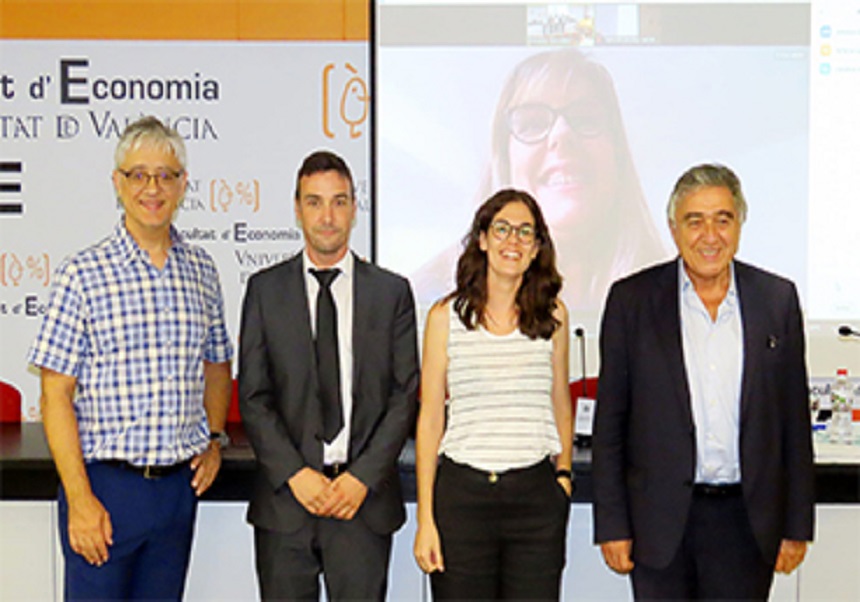
On 25 July, the reading and defence of the doctoral thesis of Antonio González-Rojas, a student on the Doctoral Programme in Social Economy at IUDESCOOP, entitled "The impact of the size of sports clubs on their financing. A quantitative analysis in the Valencian Community". His thesis supervisor was Professor Rafael Chaves Ávila, Professor of Applied Economics at the University of Valencia (UV).
The examining board was made up of José Luis Monzón Campos, honorary lecturer at the University of Valencia (president); Teresa Savall Morera, lecturer at the UV (secretary), and Carolina Martínez Andión, lecturer at the University of the Province of Santa Catarina (Brazil). The thesis obtained the qualification of Outstanding Cum Laude with international mention.
As the author explains in his thesis, sports clubs are a specific sub-type of association and therefore form part of the non-market sub-sector of the Social Economy. They stand out for their high presence and dispersion in the territory, and produce numerous positive effects on society in terms of health, training, social cohesion and dissemination of values. However, many of these organisations are in a situation of financial insufficiency, with obtaining resources being the main problem faced by their managers. Therefore, the management of funding and the maintenance of an optimal size are crucial issues for the development of their activity.
Through an exhaustive review of scientific literature, the theoretical framework of the research addresses the situation of Valencian sports clubs from a historical, sociological, economic, political and legal perspective, highlighting the structural barriers that usually prevent these entities from obtaining adequate and sufficient funding.
The empirical study analyses the impact that the internal dimensions of sports clubs have on their organisational models and financial structures, focusing particularly on the way in which they obtain the necessary income to grow, maintain or even survive depending on their size.
The research is based on extensive fieldwork that collects quantitative data through a survey of more than 500 Valencian sports clubs. To this end, the author has developed and used a proprietary model that analyses financing in eight watertight income categories, which allows it to be adapted to other existing theoretical models. He has also designed his own system for classifying clubs by size, dividing them into four dimensional segments.
The results obtained confirm that size has a significant impact on the forms of financing in sports clubs. In addition, a series of financial phenomena and mechanisms are observed in these organisations, which clearly link their organisational structure, their development model, their size and their sources of income.





